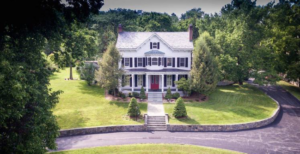Yorktown Heights ‘sober home’ partners feud for control of addiction business
The founders of a Yorktown Heights “sober home” dedicated to helping people recover from addictions are fighting one another over a partnership gone toxic.
Justin Gurland sued Zachary Clark, Matthew Rinklin and Release Recovery in Westchester Supreme Court on March 2, claiming that he was improperly stripped of his income and kicked out of the business they founded in 2017.
Clark and Rinklin responded in a March 27 court filing that Gurland strayed from the principles of running a recovery and treatment business and had to be removed.

Gurland sued them, their attorneys argued, “to tarnish the reputation of Release Recovery and its principals in an attempt to gain additional leverage in … buyout negotiations. It is Mr. Gurland’s reckless conduct that requires him to separate from Release Recovery.”
Release Recovery operates a mansion on Underhill Road in Yorktown Heights where drug and alcohol abusers live and receive mental health and support services.
Gurland and Clark each own 45% of the business and Rinklin owns 10%, according to the complaint.
“Drawing from their years of experience in the recovery field — as well as from their own personal journeys in recovery — Zac and Justin have made it their life’s work to share the gift of recovery with as many people as possible,” Release Recovery’s Facebook page states.
But a year ago, according to Gurland’s complaint, he agreed to take a temporary leave of absence as a manager “after a personal disagreement” with his partners.
His partners allegedly tried to force him to divest his interest in the business, threatened to remove him for cause, stopped paying his $8,000 biweekly income and cut off access to financial records and bank accounts.
Gurland’s complaint omits key details, Clark and Rinklin claim.
The “personal dispute” concerned an extramarital affair with an employee he managed, according to a memorandum of law their lawyers submitted. He allegedly abandoned his duties to spend time with her and treated her to an all-expense company-paid romantic getaway. After his wife learned of the affair, he allegedly tried to fire the employee.
Gurland enrolled in a residential addiction treatment program for 40 days during his leave of absence last spring, the partners said.
His actions “are fundamentally inconsistence with running a recovery and treatment business,” they said. Soon after he returned from treatment they began negotiating a buyout so that the partners could “separate on peaceful, rather than adversarial terms.”
Gurland’s attorney argues that his partners violated the Release Recovery operating agreement. He accuses them, for example, of breach of contract and unjust enrichment, and he is demanding resumption of his bi-weekly $8,000 payments and access to financial records and bank accounts.
Clark’s and Rinklin’s attorneys argue that the operating agreement requires all disputes to be settled by arbitration, and they have asked the court to compel a proceeding before the American Arbitration Association.
Gurland is represented by attorney Marc D’Angiolillo. Clark and Rinklin are represented by Kathleen M. Prystowsky and Ashley B. Akapo. Release Recovery is represented by Brian A. Herman and Elizabeth I. Buechner.
